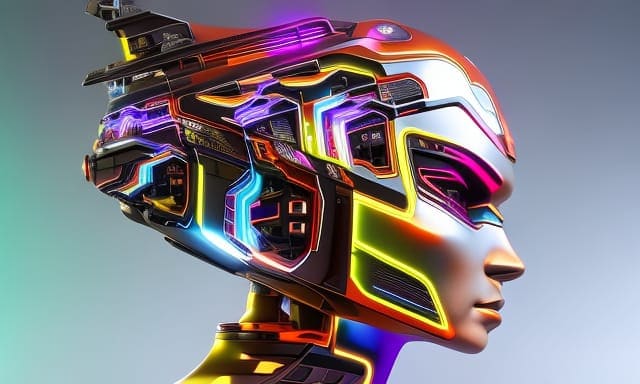Introduction to Artificial General Intelligence (AGI)
Imagine a world where machines can think, learn, and perform tasks like humans. This might sound like science fiction, but the development of Artificial General Intelligence (AGI) promises to turn this vision into reality.
In this article, we’ll dive deep into the fascinating realm of AGI, exploring its history, the challenges in its development, the potential benefits and applications, and ethical considerations and risks.
Artificial General Intelligence, also known as “strong AI” or “true AI,” refers to artificial intelligence that can perform any intellectual task a human can. Unlike narrow AI, designed for specific tasks, AGI can learn and adapt to various tasks and situations.
The History and Evolution of AGI
The Birth of AI
The concept of AGI dates back to the 1950s when computer scientist Alan Turing proposed the Turing Test, a method to determine if a machine could think like a human. This marked the beginning of modern AI research and the pursuit of AGI.
The Rise of Machine Learning
In recent decades, the development of machine learning techniques, such as deep learning and reinforcement learning, has brought us closer to achieving AGI. These approaches enable AI systems to learn from data, improving their performance.
Key Challenges in Developing AGI
Mimicking Human Intelligence
One of the major challenges in developing AGI is replicating the complexity and adaptability of human intelligence. This requires breakthroughs in AI algorithms, computational power, and our understanding of human cognition.
Data and Knowledge Representation
Representing and processing the vast amounts of data and knowledge required for AGI is another significant challenge. Researchers are exploring advanced data structures and algorithms to overcome this obstacle.
Potential Benefits and Applications of AGI
Transforming Industries
From healthcare to finance, AGI has the potential to revolutionize various industries by automating complex tasks, enhancing decision-making, and enabling new possibilities.
Solving Global Challenges
AGI could help address pressing global issues, such as climate change, poverty, and disease, by analyzing large datasets, generating innovative solutions, and driving scientific breakthroughs.
Ethical Considerations and Risks Associated with AGI
Job Displacement
The widespread adoption of AGI could lead to job displacement as machines take over tasks traditionally performed by humans. Addressing this issue requires thoughtful planning and policies to ensure a smooth transition.
AI Safety and Control
Ensuring the safety and control of AGI systems is crucial to prevent unintended consequences and potential harm. Researchers are working on methods to align AGI goals with human values and maintain control over these systems.
The Road to AGI: Current Approaches and Research
Neuroscience-Inspired AI
Researchers are increasingly turning to neuroscience to understand better and mimic human intelligence. Scientists aim to develop AGI models that closely resemble human cognitive processes by studying the human brain and its underlying mechanisms.
Artificial Neural Networks and Deep Learning
Artificial neural networks (ANNs) and deep learning have made significant strides in AI research. These computational models, inspired by the structure and function of the human brain, have demonstrated remarkable performance in various tasks, bringing us closer to AGI.
Preparing Society for AGI: Education, Policy, and Collaboration
Education and Skill Development
As AGI becomes a reality, education and skill development must evolve to ensure the workforce is prepared for a future where machines can perform many human tasks. Emphasizing critical thinking, creativity, and adaptability will be crucial in shaping a resilient workforce.
Policy and Governance
The development and implementation of AGI call for proactive policymaking and governance to address potential risks and ensure the technology benefits society as a whole. This includes regulating AGI applications, promoting transparency and accountability, and fostering international collaboration.
Collaborative Research and Open AI
AGI development will benefit from collaboration between academia, industry, and governments, promoting knowledge sharing and cooperative problem-solving. Open AI initiatives, which make AI research and resources publicly accessible, can also help accelerate AGI’s progress and ensure equitable distribution of its benefits.
FAQ
What is Artificial General Intelligence (AGI)?
How does AGI differ from narrow AI?
What are some challenges in developing AGI?
What are some potential benefits of AGI?
What are the ethical considerations and risks associated with AGI?
- https://en.wikipedia.org/wiki/Artificial_general_intelligence
- https://www.techtarget.com/searchenterpriseai/definition/artificial-general-intelligence-AGI
- https://arxiv.org/abs/2303.12712
- https://www.mckinsey.com/capabilities/operations/our-insights/an-executive-primer-on-artificial-general-intelligence








